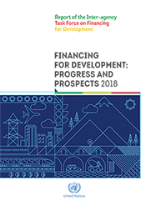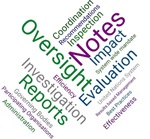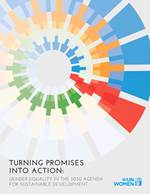Other news
Published on Fri, 2018-04-13 00:00
Short-termism impedes progress of hundreds of millions of people. The prospects of around 800 million of the world’s poorest people remain dire. The global economy is experiencing a moderate upturn, and momentum around sustainable investing is growing, the UN said today. But the vast majority of investment is still short-term oriented and commitments by the international community to create sustainable economies are not being met. |
Published on Thu, 2018-04-12 00:00
While Public-Private Partnerships (PPPs) have the potential to achieve faster policy implementation and ensure good maintenance standards, an audit of such projects in the European Union shows "widespread shortcomings and limited benefits", says a Special Report (09/2018) by the EU Court of Auditors. The report of the Luxembourg-based EU Court of Auditors, dated 20 March, became available here last week. |
Published on Thu, 2018-03-22 15:11
The United Nations and system organizations should engage with donors in a dialogue at the strategic level for the adoption of donor reporting templates and accommodating the common information needs, demands and requirements of donors and the regulatory frameworks and capacities of the organizations. This is one of the main recommendations highlighted in a new report by the Joint Inspection Unit (JIU), an independent external oversight body of the United Nations system, reviewing donor reporting requirements across the UN system. The JIU review focused on the United Nations system organizations that have the highest number of donor reports and on the 16 major donors to the United Nations system, including the European Commission. |
Published on Fri, 2018-03-16 11:30
On February 14, 2018, UN Women released its SDG Monitoring Report, Turning Promises Into Action, which assesses what is needed to achieve the goals of the 2030 Agenda for Sustainable Development, in particular in regards to gender equality. In line with the report’s focus, the 62nd session of the Commission on the Status of Women (CSW62) addresses the challenges rural women and girls face in achieving gender equality and empowerment. Despite a number of advances globally, progress for women and girls remains slow, and even where it has been made it is often highly uneven. While issues such as stagnant economic growth, rapid environmental degradation, unsustainable land use practices, and the dynamics of migration and urbanization impact women in both the global North and South, they affect rural women in particular. |
Published on Fri, 2018-03-16 10:07
International investment and trade agreements are legally binding international treaties which give investors an additional layer of legal protection on top of the host country law and contract law. However, little efforts have been made in ironing out the interface between these different laws and treaties. Inconsistencies and even contradictions have emerged in dispute settlement decisions, sometimes at the expense of public good, sovereignty and financial and economic stability. An asymmetry seems to exist in the allocation of risks and benefits between investors and recipients of investments. |
Published on Fri, 2018-02-09 16:20
The policy responses to the recent financial crisis have revealed a deep-seated structural neglect of human rights in economic policy formulation, insufficient protection of the most vulnerable and a lack of attention to participation, consultation, transparency and accountability, a United Nations human rights expert has said. "That neglect is the driving force behind the development of guiding principles for assessing the human rights impact of economic reform programmes and the development of analytical and methodological tools to assess human rights impacts." |
Published on Fri, 2017-11-24 14:59
The first session of the Intergovernmental Group of Experts (IGE) on Financing for Development at the UN Conference on Trade and Development (UNCTAD) has focussed on the challenges faced by developing countries and international community with regard to mobilising domestic public resources, as well as on international development cooperation. |
Published on Fri, 2017-11-10 12:46
The third meeting of the open-ended inter-governmental working group (OEIWG) for the elaboration of a treaty to make transnational corporations accountable for their human rights violations was held at the United Nations in Geneva last October. 101 countries attended the meeting, the largest number since the discussions started two years ago. After the 3rd session of the OEIWG, the process will continue moving towards developing a negotiating text for a draft legally binding instrument on business and human rights. The Chairperson-Rapporteur had stressed that “the mandate from the UN Human Rights Council is clear…the working group should continue working until it reaches a legally binding instrument…there is absolutely no ambiguity as to the nature of the mandate”. He underlined the historic nature of the process, pointing out that it “addresses one of the major problems of the global social contract in the 21st century”. |
|
Published on Thu, 2017-10-19 16:47
The International Monetary Fund (IMF) should change its priorities and finally let go of the outdated conditionalities of privatization, deregulation of markets, and "austerity" in social services, which in the past have engendered human rights violations, and instead make loans subject to a new set of conditions. This is the view of the Independent Expert on the promotion of a democratic and equitable international order, Mr Alfred de Zayas (of the United States), in a report presented to the seventy-second session of the UN General Assembly in New York. |
Published on Tue, 2017-10-17 09:57
Peace is the main issue to be highlighted this October 17 during the International Day for the Eradication of Poverty, explains Donald Lee, president of the international committee that is organizing simultaneous activities in Manila, Dublin, Dakar, New York, Paris and Guatemala. Thirty years ago Father Joseph Wresinski launched a Call to Action declaring that “Wherever men and women are condemned to live in extreme poverty, human rights are violated. |












